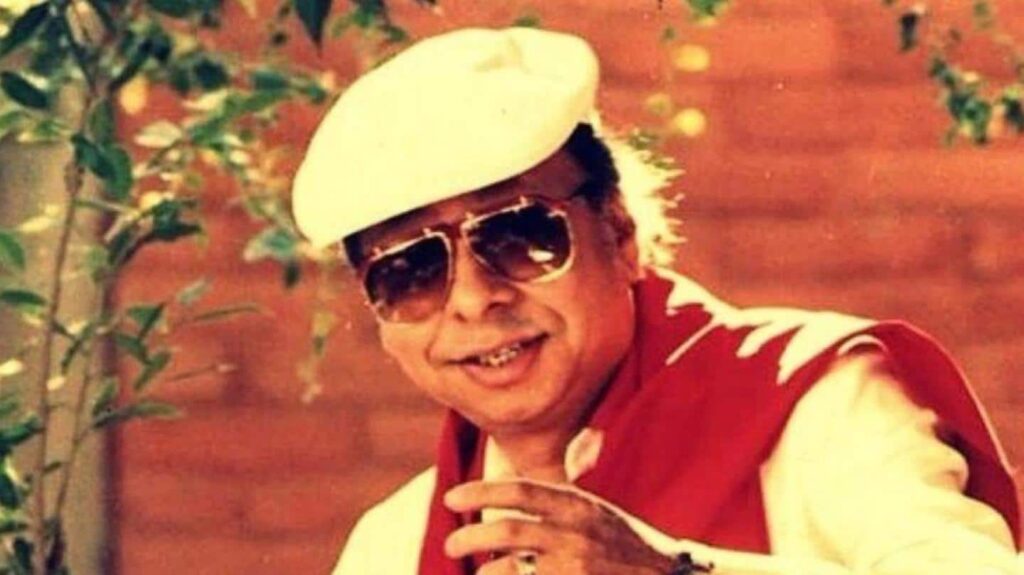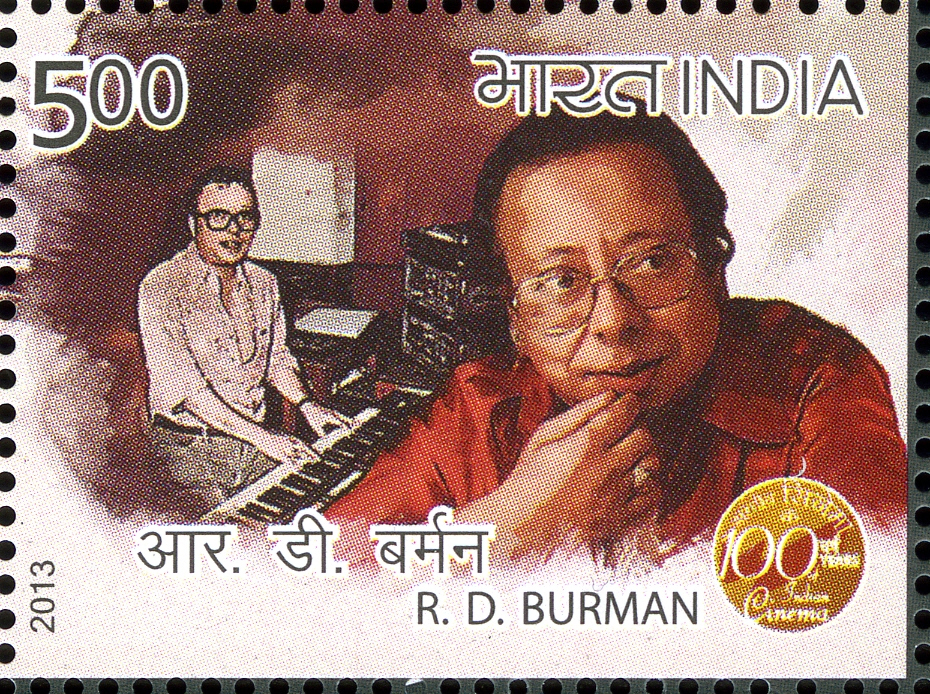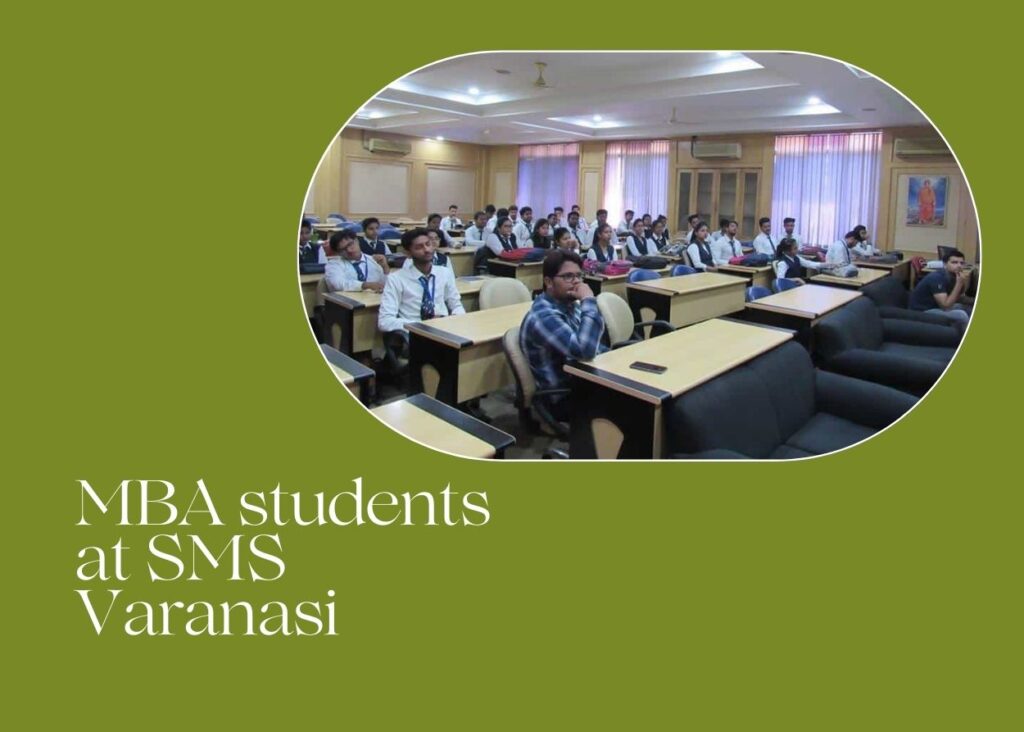As I drove to the office with a friend, the enchanting melodies of genius composer R.D. Burman filled the air. We found ourselves captivated by his masterful use of musical instruments, each sounding uniquely melodious under his baton.
Burman was a true magician, effortlessly wielding both traditional instruments like the flute, mandolin, mouth organ, and accordion, as well as unconventional ones like the African instrument reso reso and Castanets, ancient percussion instruments.
He even pushed the boundaries by incorporating non-musical objects such as empty beer bottles and tea glasses into his compositions, creating exceptional musical pieces that transcended the norm.
In stark contrast, today’s music composers often rely on electronic sounds and pre-recorded music, resulting in a cacophony of dissonant and ear-piercing noise. Their auto-tuned voices, a poor imitation of the singers of yesteryears, fail to evoke any true emotions within us.

What set Burman apart? How did he find music in the most unexpected places? Usha Uthup, a noted singer, shared in an interview that “Pancham believed that every note in nature was meant for him to take.” He saw music in everything around him.
One example, as mentioned by celebrated singer Asha Bhosle, was when they watched a James Bond movie together. In a scene where Bond emerged from a swimming pool with a bird flying overhead and background music playing, Burman drew inspiration from those notes, incorporating them as the opening chorus in the song “Koi Diya Jale Kahin.”
Who could have imagined that a gurgling sound created by holding water in one’s throat could serve as an eerie background for the entry of the villain Babu in the film “Satte Pe Satta”? Burman fearlessly experimented with unconventional sounds, harnessing their hidden potential to weave ageless and captivating melodies.
In a biopic on Pancham by filmmaker Brahamand Singh, his assistant Bhanu Gupta shared an intriguing incident. Musicians would gather at Burman’s house at 9 am daily, even when there were no scheduled recordings. On one such occasion, Gupta arrived early while Burman was taking a bath. Seated in the practice room, Gupta began playing his guitar, experimenting with random notes.
Suddenly, Burman emerged from the bathroom, his head wet, and exclaimed, “What were you playing? Keep playing it!” Those days, they were working on the movie “Parichay” by Gulzar, and Burman incorporated Gupta’s notes as the concluding notes of the song “Musafir Hoon Yaaron.”
Burman always acknowledged the contributions of his team, embracing their suggestions and sharing their brilliance with others.

Burman possessed a unique ability to see and hear the hidden sounds within ordinary objects and instruments. His passion for music, both as a profession and a personal calling, fueled his creativity. He composed for his own satisfaction, taking immense pleasure in finding the perfect notes that resonated deep within.
He understood the capabilities of his musicians and their instruments, envisioning the desired effect like no one else could. His unconventional approach to music creation resulted in the creation of extraordinary symphonies.
Lessons MBA students can learn from R D Burman
MBA students at SMS Varanasi are groomed to be the best management professionals. This article aims to help with it.

In many ways, a manager is akin to a music composer. They create a business symphony, where profit, growth, and brand image are the musical notes brought to life by their team, consisting of colleagues and subordinates who wield their skills and knowledge like musical instruments. The role of a manager is to harmonize and orchestrate their team’s talents, recognizing each member’s unique abilities and strengths.
- Ability to see the hidden potential: Similar to a skilled musician, an effective manager is passionate about their work, unearthing opportunities that others may overlook. They possess the ability to see the potential in their coworkers, inspiring and empowering them to contribute to the organizational symphony.
- Embrace innovation: Unafraid to explore unorthodox methods, a good manager embraces innovation and thinks outside the box.
- A clear vision of the end goal: Following in the footsteps of the great composer Burman, an exceptional manager begins with the end in mind. They have a clear vision of the music they wish to create and effortlessly select the chords from the vast array of possibilities. Their mind is a canvas, with the tune constantly playing, and they piece together the elements like a jigsaw puzzle, ensuring each piece finds its rightful place.
- Recognize others’ contributions: Recognizing and appreciating the contributions of team members is a hallmark of a good manager. They understand that praise and recognition breed commitment, ownership, and unwavering dedication. These qualities are priceless and cannot be bought with any amount of money.
- Inspire others with your passion: The manager’s passion and motivation are contagious, infecting the entire team. Much like Burman’s musicians reporting to duty early and persevering until the job is done, they share a sense of ownership and the joy of accomplishment.
Burman’s immortality lies not only in his creations but also in the commitment and passion he instilled in his team. It is this extraordinary factor that separates the symphony from the cacophony, determining whether the collective effort results in something truly remarkable.
In conclusion, let us draw inspiration from the genius of R.D. Burman and embrace his legacy in our pursuit of creating harmonious and successful management journeys. Like him, let us find music in the unlikeliest of places, celebrating the extraordinary talents within our teams and fostering a symphony that resonates with greatness.





